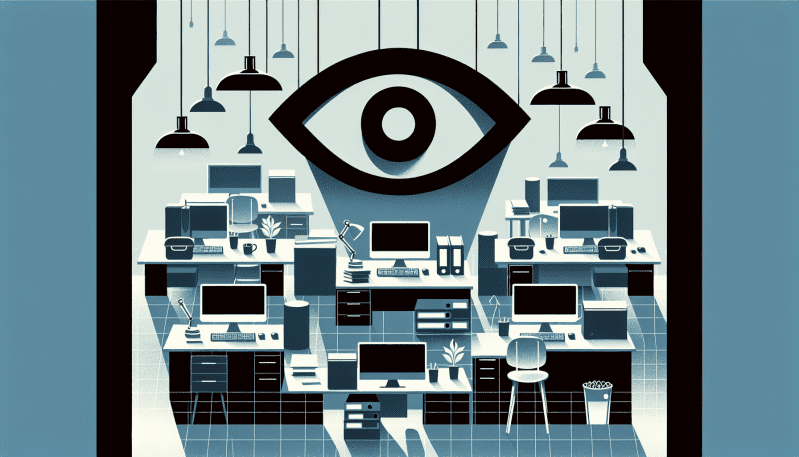In recent years, workplace surveillance has become increasingly prevalent, with employers using various technologies to monitor their employees’ activities. While proponents argue that surveillance is necessary for productivity and security, others raise concerns about invasion of privacy and the potential for abuse. As a technology ethicist, it is crucial to explore the ethical implications of workplace surveillance.
One of the potential benefits of workplace surveillance is increased productivity. Employers argue that monitoring employees’ activities can help identify inefficiencies and areas for improvement. By analyzing data on employee behavior, employers can make informed decisions to optimize workflows and increase output. Additionally, surveillance can deter employees from engaging in non-work-related activities, ensuring that they remain focused on their responsibilities.
On the other hand, there are significant drawbacks to workplace surveillance. Invasion of privacy is a primary concern, as constant monitoring can make employees feel uneasy and violated. This can lead to a decline in employee morale and a lack of trust between management and staff. Furthermore, excessive surveillance can create a culture of micromanagement, where employees feel pressured to meet unrealistic expectations, resulting in heightened stress levels and potential burnout.
To address these ethical concerns, guidelines for responsible implementation of surveillance technologies should be established. Transparency is crucial, as employees should be informed about the extent and purpose of monitoring. Consent should be obtained, and clear policies should be in place to protect employee privacy. The data collected should only be used for legitimate purposes, such as improving productivity or ensuring workplace security. Regular assessments should be conducted to evaluate the effectiveness and ethical implications of surveillance measures.
In conclusion, workplace surveillance presents a complex ethical dilemma. While it may have benefits in terms of productivity and security, it also raises concerns about privacy invasion and employee trust. As technology ethicists, it is our responsibility to advocate for responsible implementation of workplace surveillance, ensuring that the rights and well-being of employees are prioritized.


























